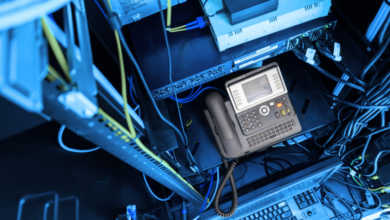
In a world characterized by constant motion and perpetual demands, finding equilibrium is often a challenging endeavor. The French phrase “De Vous Balançignier” loosely translates to “Balancing Yourself,” embodying the essence of achieving balance and harmony in various aspects of life. This concept, though simple in its articulation, holds profound significance in our fast-paced, modern lives.
Table of Contents
ToggleUnderstanding “De Vous Balançignier”
The term “De Vous Balançignier” is derived from the French language, where “balancer” means to balance, and “vous” refers to “yourself.” The phrase emphasizes the importance of maintaining a balanced life, focusing on both physical and emotional well-being. Achieving this balance requires an understanding of one’s needs and a proactive approach to managing life’s demands.
The Importance of Balance
Balance is crucial for several reasons:
- Mental Well-being: Maintaining a balanced lifestyle can significantly reduce stress and anxiety. When we allocate time for work, relaxation, and social activities, we create a buffer against burnout and mental fatigue.
- Physical Health: A balanced approach to diet, exercise, and rest is essential for physical health. Overworking the body or neglecting exercise can lead to health issues, while a well-rounded routine fosters overall wellness.
- Productivity: Balance enhances productivity by allowing individuals to focus on various tasks effectively. When work-life balance is achieved, individuals can perform better in their professional and personal lives.
- Relationships: Balanced individuals are often more present and engaged in their relationships. By allocating time and energy to loved ones, they strengthen bonds and foster healthier interactions.
Strategies for Achieving Balance
- Prioritize Self-Care: Allocate time for activities that rejuvenate and relax you. Whether it’s reading, meditating, or pursuing a hobby, self-care is crucial for maintaining balance.
- Set Boundaries: Establish clear boundaries between work and personal life. This might involve setting specific work hours, creating a designated workspace, or limiting work-related communications outside of office hours.
- Time Management: Develop effective time management skills to ensure that you can juggle various responsibilities without feeling overwhelmed. Tools like calendars, to-do lists, and productivity apps can be helpful.
- Embrace Flexibility: Life is unpredictable, and rigidity can lead to stress. Being adaptable and open to change allows you to navigate life’s ups and downs more gracefully.
- Seek Support: Don’t hesitate to seek support from friends, family, or professionals. Sometimes, talking to someone about your challenges can provide new perspectives and solutions.
The Impact of Technology on Balance
In the digital age, technology plays a dual role in achieving balance. On one hand, it offers tools and resources that can aid in time management and productivity. On the other hand, it can contribute to information overload and constant connectivity, making it challenging to disconnect and maintain personal boundaries.
To navigate this, it’s essential to use technology mindfully. Set limits on screen time, turn off unnecessary notifications, and use digital tools to enhance, rather than detract from, your balance.
Embracing the Philosophy of “De Vous Balançignier”
Incorporating the philosophy of “De Vous Balançignier” into your life involves a commitment to self-awareness and intentionality. It’s about recognizing the areas where imbalance exists and taking proactive steps to address them. By focusing on personal well-being and fostering a balanced approach to various aspects of life, you can cultivate a more harmonious and fulfilling existence.
Ultimately, the art of balancing oneself is an ongoing journey. It requires regular reflection, adjustment, and a willingness to embrace change. By integrating these practices into your daily life, you can achieve a state of equilibrium that supports both personal and professional growth.




